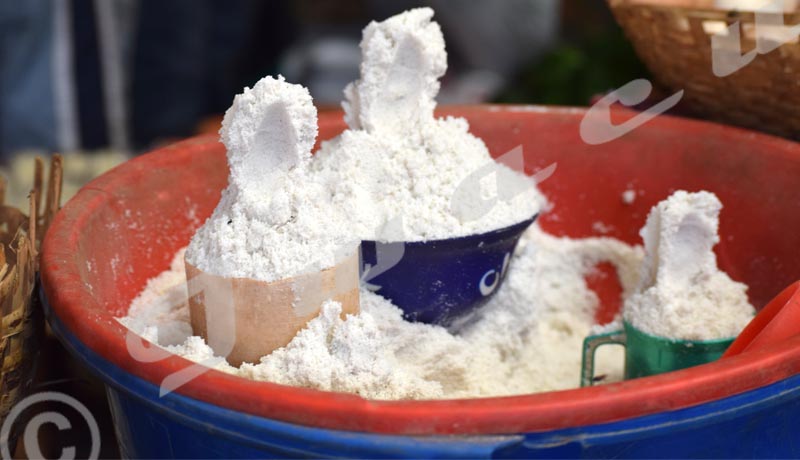Despite having been banned by the Ministry of Trade, some kinds of salt namely “Chumvi Mawe” and “Chumvi safi” are still sold by some traders at Bujumbura City Market and Cotebu market located in the north of Bujumbura.

Illegal salt at some markets in Bujumbura city
At Cotebu market, some traders say they no longer get Chumvi Mawe and Chumvi Safi salt from their wholesalers though consumers like them.
However, other traders say they are still selling the same kinds of salt.
“This salt (Chumvi Mawe) comes from Tanzania and is refined in Ngozi before we get it from wholesalers,” says one trader at Cotebu market.
“They have recently told us that the salt is banned in Burundi because it doesn’t contain iodine mineral elements,” he says adding that he keeps selling it as wholesalers still bring it at the market.
Some traders and consumers say they cannot differentiate kinds of salt, therefore, they buy or sell them whenever they are on the market.
At Bujumbura City Market, one vendor accepts that he has Chumvi Safi though it is among the kinds of salt that have been banned by the Ministry of Trade.
He says a package of Chumvi Safi is sold at BIF 20,000 and denies having known that it has been prohibited.
Noel Nkurunziza, Secretary General and Spokesman for the Burundian Association of Consumers-ABUCO says there is a lack of follow-up after the ministry of trade has decided to ban some kinds of salt.
“The Ministry of Trade must work hard to prevent illegal salt from being sold at the market so as to protect people’s health,” he says adding that there should be a law to protect consumers against dangerous products.
He calls on consumers to denounce all products which can endanger their lives.
At a press conference held on September 10th, Jean Marie Niyokindi, Minister of Trade, said kinds of salt such as Chumvi Mawe, Chumvi Safi, Chumvi Nzuri all from Tanzania are banned in Burundi.
He added that Neel, Nezo and Sea salt are good for human health.



















 IWACU Open Data
IWACU Open Data

